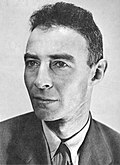John Adams (composer)
John Coolidge Adams is an American composer. He was born in 1947. He was born in Worchester, Massachusetts.[1] His music often uses minimalism with large orchestras and lots of different sounds. He was named after John Adams, the 2nd President of the United States.
Life
He studied music at Harvard University. After he graduated from Harvard, he went to California. Soon, he became part of the musical community of San Francisco. He listened to the music of minimalist composers like John Cage, Terry Riley and Morton Feldman. By the mid-1980s he was working as composer and conductor. The piece that made him famous was called Harmonium.[2] Harmonium is made to sound like a harmonium, but the title also refers to "harmony". This shows that he is writing tonal music, unlike some composers at the time whose music was getting more difficult to understand because it was not in any key.[3]
Adams wrote several short pieces such as Short Ride in a Fast Machine and The Chairman Dances. This last piece is music from his opera Nixon in China. It was performed many times, but made some people angry because the Chinese leaders Chou En-lai and Mao Tse-tung are shown in it as human beings who deserve sympathy.
Adam's Violin Concerto has been performed over 100 times by many of the world's famous violinists. Adam's song, The Chairman Dances, was put in the game Civilization IV.
John Adams (composer) Media
Adams' first opera, Nixon in China, is about President Richard Nixon's 1972 visit to China.
Adams' third opera, Doctor Atomic, is about J. Robert Oppenheimer (shown above, in 1944) and the development of the atomic bomb in 1945.
References
- ↑ Warrack, John; Warrack, Lecturer in Music John; West, Ewan (1992). The Oxford Dictionary of Opera. Oxford University Press. ISBN 978-0-19-869164-8.
- ↑ Sadie, Stanley; Tyrrell, John (October 2000). The New Grove Dictionary of Music and Musicians. OXFORD University Press. ISBN 978-1-56159-263-0.
- ↑ "John Adams | Harmonium". 2013-01-17. Archived from the original on 2013-01-17. Retrieved 2023-04-24.



